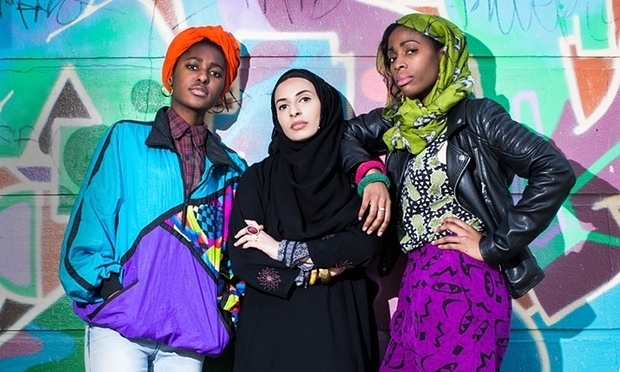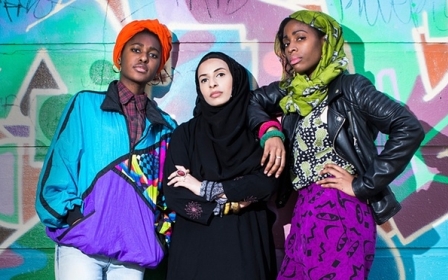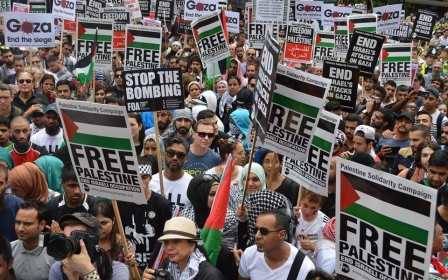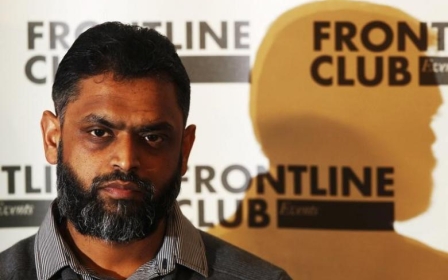'Homegrown': The play that exposed limit of UK's 'risk averse culture'

It is two years since the controversial drama Homegrown, which tackles issues of radicalisation from the viewpoint of young Muslims, was cancelled at the last minute, sparking claims that it had fallen victim to censorship. Earlier this month, the play finally made it to the stage as part of an event organised by the group Index on Censorship.
The play's director, Nadi Latif, told Middle East Eye at the event that she is still perplexed about the abrupt cancellation in March 2015.
“I’m still in the dark about why our play wasn’t allowed to be performed,” Latif said, stating that the play’s cancellation may have been because of heightened political sensitivity surrounding the issues it explores.
The play includes references to the government's Prevent counter-terrorism strategy and Channel deradicalisation programme, which many British Muslims consider to be discriminatory and alienating.
Along with Latif, Omar Khairy, who co-wrote Homegrown, said the play's cancellation in 2015 amounted to censorship.
Senior figures at Arts Council England, the UK's main arts funding body, at the time raised concerns about whether the cancellation constituted censorship and discussed whether they should step in to “help find a way to get this play shown”, released emails revealed.
The emails, obtained by Middle East Eye via a Freedom of Information request in 2015, also revealed criticism of the National Youth Theatre (NYT) over its handling of the production which had been promoted as a main feature of the company's summer season until its abrupt cancellation just days before its opening night.
“NYT seem to be handling their comms very badly on this jihadi play. Are we happy that they are solid on the substance of their decision?” Mags Patten, the Arts Council's national director for communications, wrote in an email to a colleague on 5 August 2015.
“We need to be careful that if we are asked about it that we are being supportive ... but always mindful of the vital importance of freedom of expression. Helping them to find a way to get this play shown?”
The NYT had initially stated that it had dropped the production because of quality concerns, but an email from Paul Roseby, the company's artistic director, appeared to confirm that the play's content was also under scrutiny, with Roseby telling colleagues that the creators had failed to justify “their extremist agenda” and that the production “lacked in-depth analysis, balance or debate”.
The emails in 2015 further confirmed that NYT met with police officers to discuss the play and that their concerns influenced the company's artistic director in cancelling the play.
Murky police role
Latif went on to express her confusion over the role the police played and called for clear guidelines to be written for future reference in order to allow space for “negotiations”.
“In the two years since then, I’ve met a lot of people who have had similar experiences and the police are a recurring theme. There always there in the background, whether they’re giving helpful advice or offering security measures or whatever it is. If anything, the kind of murkiness of it leaves them open to more criticism.”
“If we were all completely clear about exactly what function the police have in these things, then at least we would be able to negotiate it on concrete terms. At the moment it just feels like we’re all swimming in this soup of not really knowing what their role is, and I would like clarity on that.”
The NYT also faced criticism from anti-censorship campaigners and leading figures in the theatre world.
Speaking on the panel before the performance took place, the Bush theatre’s artistic director, Madani Younis, blamed societal norms within "British theatre".
For all its talk about being “radical, liberal and leftwing”, British theatre was, in reality, a “predominantly a conservative, middle-class monoculture”, he said.
Risk averse culture
He went on to highlight the honesty of Homegrown for shedding light on the young British Muslim experience, saying that there can never be real freedom of speech in a society in which there is no real equality.
Sean Gallagher, head of content at Index on Censorship, told MEE that the cancellation took place within a “risk-averse culture”.
“They [producers] have difficult decisions to make, when you are looking at risk assessment, and you are weary of everything that could possibly go wrong, you need to take steps to protect yourself and in that situation you can quickly find yourself almost unwittingly entering a censorious space. And we all need to admit that.”
He continued, “I think we all need to bravely get into dealing with that if we want our culture to move forward. If any of us actually believe in free speech and free expression, we all need to kind of get our hands dirty in terms of dealing with a way forward.”
Homegrown offered a dramatic portayal of many questions over the meaning of censorship, boundaries and the British Muslim experience. Two years on, it seems these questions are just as pertinent.
Stay informed with MEE's newsletters
Sign up to get the latest alerts, insights and analysis, starting with Turkey Unpacked
Middle East Eye delivers independent and unrivalled coverage and analysis of the Middle East, North Africa and beyond. To learn more about republishing this content and the associated fees, please fill out this form. More about MEE can be found here.




